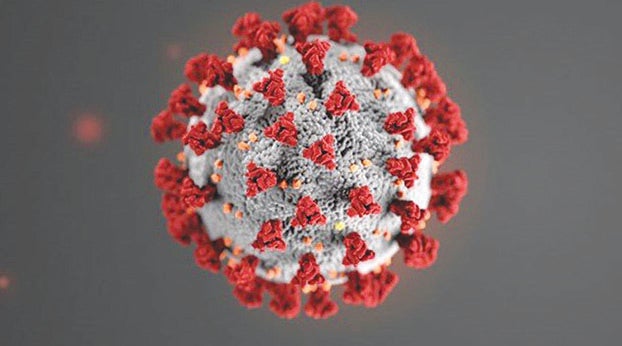UK research claims vaccine is effective for mothers and babies
Published 7:33 am Tuesday, January 17, 2023
NEWS RELEASE
University of Kentucky
University of Kentucky researchers say they have found that maternal vaccination against Covid-19 works to protect both the mother and baby.
National Institutes of Health grant, was published in the American Journal of Obstetrics and Gynecology Maternal-Fetal Medicine. The findings come as Covid-19 cases and hospitalizations are on the rise across the U.S. and the Commonwealth after the holidays.
“Covid-19 is here to stay. It’s not going anywhere,” said Ilhem Messaoudi, Ph.D., chair of the Department of Microbiology, Immunology and Molecular Genetics in the UK College of Medicine. “The study shows that vaccines are safe and maternal vaccinations are an effective way to protect not only the mom but the baby until they become eligible for the vaccine. We don’t think that you can fully protect the baby by just breastfeeding.”
Messaoudi and her team at UK conducted the study in collaboration with Oregon Health & Science University.
Researchers monitored a cohort of 120 women from March 2021 until June 2022, through pregnancy, delivery and postpartum, plus two rounds of Covid-19 vaccinations and their booster shot. Roughly 90% of participants received Pfizer’s vaccine.
“What we’ve learned is the first series of the vaccine induces a pretty good immune response in the moms that we can track by looking at antibodies in their plasma,” said Messaoudi.
Scientists monitored antibody response in blood samples from the mother, umbilical cord and newborn along with donated breast milk from the vaccinated participants. Researchers found that antibodies passively transfer from mother to fetus in utero, offering the most protection.
“So at birth, these babies had maternal antibodies in circulation, which is fantastic. Getting vaccinated during pregnancy not only protected the mom, but also now provided passive protection for their newborns who are not eligible for the vaccine,” said Messaoudi.
In this study, the participants received their boosters after giving birth. Within a couple of weeks, researchers saw a dramatic increase in antibodies in the mother’s plasma, which were not directly passed to newborns at the time. But the antibodies in breast milk increased two- to three-fold, Messaoudi said, with a half-life of more than 200 days.
“There was a massive increase in antibodies, which was unexpected but great to see,” said Messaoudi. “You really needed the first two shots and the booster to achieve excellent protection, to have that very long-lived, durable immune response. Then the newborn is protected via antibody transfer in utero through the placenta and postnatal through breastfeeding.”
The Centers for Disease Control and Prevention recommends everyone 6 months and older get the Covid-19 vaccine, including people who are pregnant, breastfeeding, trying to get pregnant now or might become pregnant in the future.
People who are pregnant or were recently pregnant, are more likely to get severely ill from Covid-19 compared to people who are not pregnant, according to the CDC, and have a higher risk for preterm birth.
“Pregnancy is a state of immunosuppression to facilitate the growth and development of a fetus. That’s why it’s even more important that pregnant women get vaccinated,” said Messaoudi.
The immunologist explained it’s the first step in a mother giving potentially lifesaving help to their child, like putting on an oxygen mask while on a plane before you help others.
“Not only is it important to get vaccinated, but it’s important to go through the whole series of vaccinations because we also know from the study that just getting the first two shots is not going to be enough. You have to get your booster and the Omicron bivalent booster so that you can get the full benefit,” said Messaoudi.
Researchers will continue to monitor study participants and expect to release more findings on the boosters’ efficacy against the omicron variant in the continued fight against Covid-19.
“We now have a really large number of studies on vaccinations in pregnant women,” said Messaoudi. “They’ve all shown great safety, tolerability and immunogenicity, so we’ve hit the trifecta. The vaccines are safe and work. That’s what’s really important.”
Messaoudi told Travis that there were “no adverse outcomes” in the study, adding that every time a mother came in to give a breastmilk sample they also did a nasal swab to check for Covid-19. In addition, she said they got samples from the babies.
“We had very, very few breakthrough infections,” she said. “It was great to see that. It’s doing what it’s supposed to be doing.”







